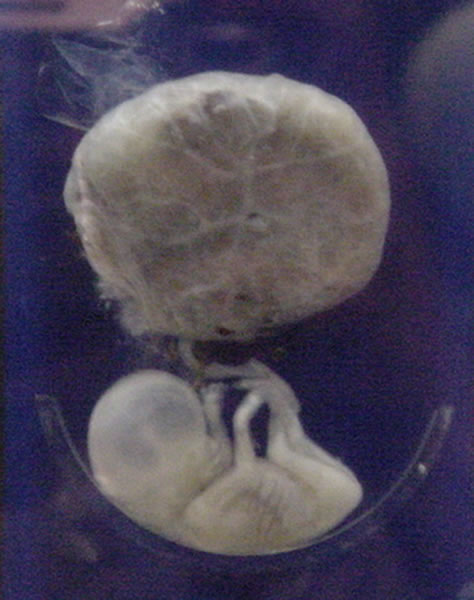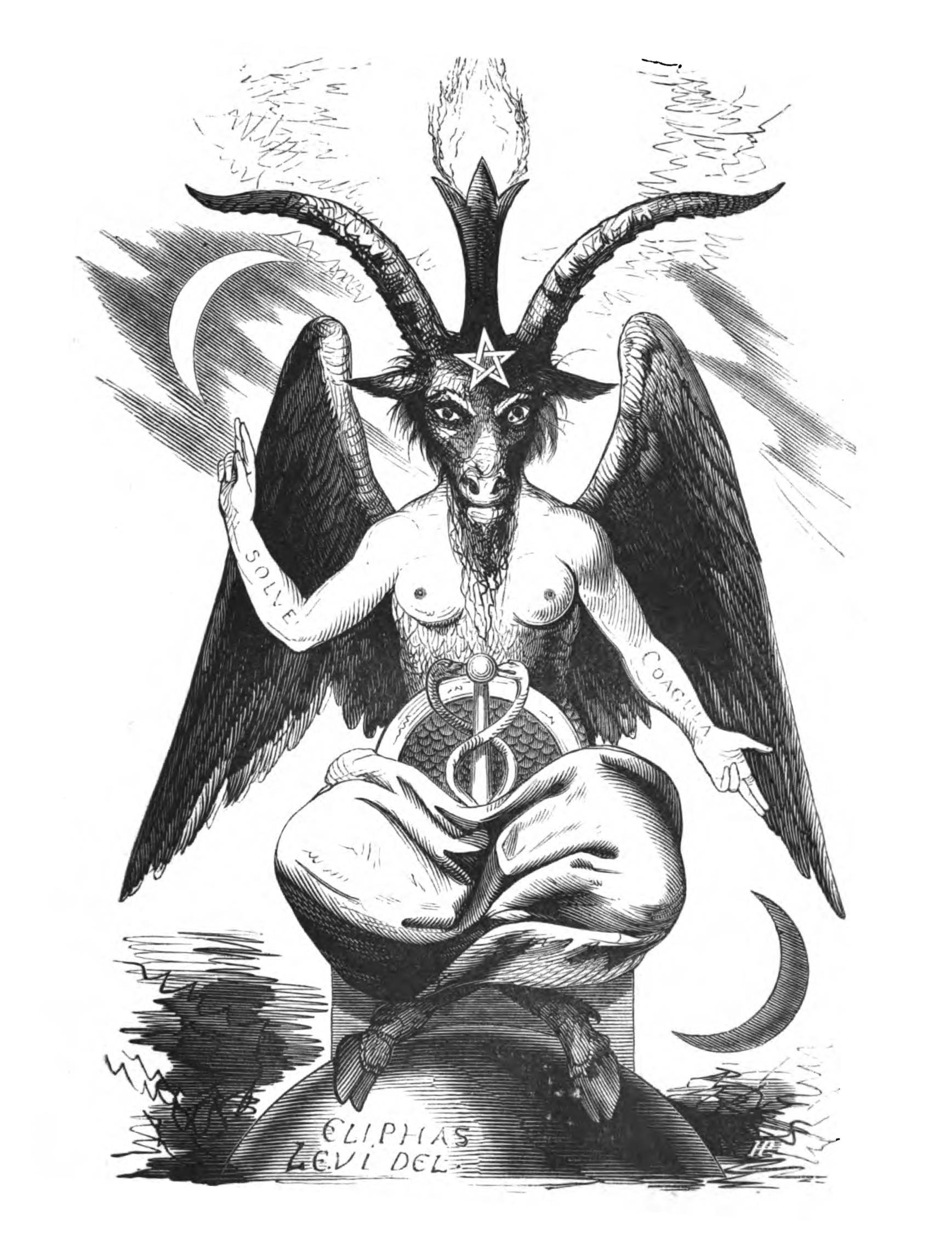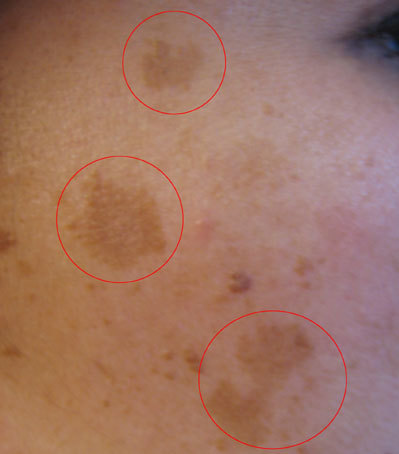|
Sleeping Child
The sleeping child ( maghrebi Arabic: ''ragued'' or ''bou-mergoud''), according to Moroccan and the wider Maghrebian folk belief, is a fetus which has been rendered dormant by black or white magic and may eventually wake up and be born after the normal pregnancy term. This belief, supported by the concept that God's will controls everything and that no event should be considered truly impossible, is used by local communities to deal with occasional cases of pregnancy in women with absentee husbands, a frequent situation in the modern era due to the large number of males working as immigrant labor in Europe. This folk belief is used to dismiss an accusation of adultery and the consequences that such an accusation would bring. This belief was acknowledged by traditional Islamic legislation in Morocco, and is still given as an explanation by some divorced or separated women expecting their ex-husbands to acknowledge the paternity of a child born up to twelve months after the s ... [...More Info...] [...Related Items...] OR: [Wikipedia] [Google] [Baidu] |
Maghrebi Arabic
Maghrebi Arabic (, Western Arabic; as opposed to Eastern or Mashriqi Arabic) is a vernacular Arabic dialect continuum spoken in the Maghreb region, in Morocco, Algeria, Tunisia, Libya, Western Sahara, and Mauritania. It includes Moroccan, Algerian, Tunisian, Libyan, and Hassaniya Arabic. It is known locally as Darja, Derdja, Derja, Derija or Darija, depending on the region's dialect ( ar, الدارجة; meaning "common or everyday dialect"). This serves to differentiate the spoken vernacular from Standard Arabic. Maghrebi Arabic has a predominantly Semitic and Arabic vocabulary, although it contains a few Berber loanwords which represent 2 to 3% of the vocabulary of Libyan Arabic, 8 to 9% of Algerian and Tunisian Arabic, and 10 to 15% of Moroccan Arabic. The Maltese language is believed to be derived from Siculo-Arabic and ultimately from Tunisian Arabic, as it contains some typical Maghrebi Arabic areal characteristics. Name ''Darija'', ''Derija'' or ''Delja'' ( ar, ال� ... [...More Info...] [...Related Items...] OR: [Wikipedia] [Google] [Baidu] |
Morocco
Morocco (),, ) officially the Kingdom of Morocco, is the westernmost country in the Maghreb region of North Africa. It overlooks the Mediterranean Sea to the north and the Atlantic Ocean to the west, and has land borders with Algeria to the east, and the disputed territory of Western Sahara to the south. Mauritania lies to the south of Western Sahara. Morocco also claims the Spanish exclaves of Ceuta, Melilla and Peñón de Vélez de la Gomera, and several small Spanish-controlled islands off its coast. It spans an area of or , with a population of roughly 37 million. Its official and predominant religion is Islam, and the official languages are Arabic and Berber; the Moroccan dialect of Arabic and French are also widely spoken. Moroccan identity and culture is a mix of Arab, Berber, and European cultures. Its capital is Rabat, while its largest city is Casablanca. In a region inhabited since the Paleolithic Era over 300,000 years ago, the first Moroccan st ... [...More Info...] [...Related Items...] OR: [Wikipedia] [Google] [Baidu] |
Maghreb
The Maghreb (; ar, الْمَغْرِب, al-Maghrib, lit=the west), also known as the Arab Maghreb ( ar, المغرب العربي) and Northwest Africa, is the western part of North Africa and the Arab world. The region includes Algeria, Libya, Mauritania (also considered part of West Africa), Morocco, and Tunisia. The Maghreb also includes the disputed territory of Western Sahara (controlled mostly by Morocco and partly by the Sahrawi Arab Democratic Republic) and the Spanish cities Ceuta and Melilla.Article 143. As of 2018, the region had a population of over 100 million people. Through the 18th and 19th centuries, English sources often referred to the region as the Barbary Coast or the Barbary States, a term derived from the demonym of the Berbers. Sometimes, the region is referred to as the Land of the Atlas, referring to the Atlas Mountains, which are located within it. The Maghreb is usually defined as encompassing much of the northern part of Africa, includi ... [...More Info...] [...Related Items...] OR: [Wikipedia] [Google] [Baidu] |
Fetus
A fetus or foetus (; plural fetuses, feti, foetuses, or foeti) is the unborn offspring that develops from an animal embryo. Following embryonic development the fetal stage of development takes place. In human prenatal development, fetal development begins from the ninth week after fertilization (or eleventh week gestational age) and continues until birth. Prenatal development is a continuum, with no clear defining feature distinguishing an embryo from a fetus. However, a fetus is characterized by the presence of all the major body organs, though they will not yet be fully developed and functional and some not yet situated in their final anatomical location. Etymology The word '' fetus'' (plural '' fetuses'' or '' feti'') is related to the Latin '' fētus'' ("offspring", "bringing forth", "hatching of young") and the Greek "φυτώ" to plant. The word "fetus" was used by Ovid in Metamorphoses, book 1, line 104. The predominant British, Irish, and Commonwealth spelling ... [...More Info...] [...Related Items...] OR: [Wikipedia] [Google] [Baidu] |
Black Magic
Black magic, also known as dark magic, has traditionally referred to the use of supernatural powers or magic for evil and selfish purposes, specifically the seven magical arts prohibited by canon law, as expounded by Johannes Hartlieb in 1456. During his period of scholarship, A. E. Waite provided a comprehensive account of black magic practices, rituals and traditions in ''The Book of Ceremonial Magic'' (1911). It is also sometimes referred to as the " left-hand path". In modern times, some find that the definition of black magic has been convoluted by people who define magic or ritualistic practices that they disapprove of as black magic. The seven ''Artes prohibitae'' of black magic The seven ''artes prohibitae'' or ''artes magicae'', arts prohibited by canon law, as expounded by Johannes Hartlieb in 1456, their sevenfold partition reflecting that of the artes liberales and artes mechanicae, were: # necromancy # geomancy # hydromancy # aeromancy # pyromancy # chi ... [...More Info...] [...Related Items...] OR: [Wikipedia] [Google] [Baidu] |
Left-hand Path And Right-hand Path
In Western esotericism the left-hand path and right-hand path are the dichotomy between two opposing approaches to magic. This terminology is used in various groups involved in the occult and ceremonial magic. In some definitions, the Left-Hand Path is equated with malicious black magic or black shamanism, while the Right-Hand Path is equated with benevolent white magic. Other occultists have criticised this definition, believing that the Left–Right dichotomy refers merely to different kinds of working and does not necessarily connote good or bad magical actions. Other practitioners state the difference between the two is that the desired outcome of the right is to be beside God and to serve him, while the left believe in self deification and bow to no one. In more recent definitions, which base themselves on the terms' origins in Indian Tantra, the Right-Hand Path (RHP, or '' Dakshinachara''), is seen as a definition for those magical groups that follow specific ethical cod ... [...More Info...] [...Related Items...] OR: [Wikipedia] [Google] [Baidu] |
Pregnancy
Pregnancy is the time during which one or more offspring develops ( gestates) inside a woman's uterus (womb). A multiple pregnancy involves more than one offspring, such as with twins. Pregnancy usually occurs by sexual intercourse, but can also occur through assisted reproductive technology procedures. A pregnancy may end in a live birth, a miscarriage, an induced abortion, or a stillbirth. Childbirth typically occurs around 40 weeks from the start of the last menstrual period (LMP), a span known as the gestational age. This is just over nine months. Counting by fertilization age, the length is about 38 weeks. Pregnancy is "the presence of an implanted human embryo or fetus in the uterus"; implantation occurs on average 8–9 days after fertilization. An ''embryo'' is the term for the developing offspring during the first seven weeks following implantation (i.e. ten weeks' gestational age), after which the term '' fetus'' is used until birth. Signs a ... [...More Info...] [...Related Items...] OR: [Wikipedia] [Google] [Baidu] |
Europe
Europe is a large peninsula conventionally considered a continent in its own right because of its great physical size and the weight of its history and traditions. Europe is also considered a subcontinent of Eurasia and it is located entirely in the Northern Hemisphere and mostly in the Eastern Hemisphere. Comprising the westernmost peninsulas of Eurasia, it shares the continental landmass of Afro-Eurasia with both Africa and Asia. It is bordered by the Arctic Ocean to the north, the Atlantic Ocean to the west, the Mediterranean Sea to the south and Asia to the east. Europe is commonly considered to be separated from Asia by the watershed of the Ural Mountains, the Ural River, the Caspian Sea, the Greater Caucasus, the Black Sea and the waterways of the Turkish Straits. "Europe" (pp. 68–69); "Asia" (pp. 90–91): "A commonly accepted division between Asia and Europe ... is formed by the Ural Mountains, Ural River, Caspian Sea, Caucasus Mountains, and the Blac ... [...More Info...] [...Related Items...] OR: [Wikipedia] [Google] [Baidu] |
Adultery
Adultery (from Latin ''adulterium'') is extramarital sex that is considered objectionable on social, religious, moral, or legal grounds. Although the sexual activities that constitute adultery vary, as well as the social, religious, and legal consequences, the concept exists in many cultures and is similar in Christianity, Judaism and Islam. Adultery is viewed by many jurisdictions as offensive to public morals, undermining the marriage relationship. Historically, many cultures considered adultery a very serious crime, some subject to severe punishment, usually for the woman and sometimes for the man, with penalties including capital punishment, mutilation, or torture. Such punishments have gradually fallen into disfavor, especially in Western countries from the 19th century. In countries where adultery is still a criminal offense, punishments range from fines to caning and even capital punishment. Since the 20th century, criminal laws against adultery have become con ... [...More Info...] [...Related Items...] OR: [Wikipedia] [Google] [Baidu] |
Paternity (law)
Paternity law refers to body of law underlying legal relationship between a father and his biological or adopted children and deals with the rights and obligations of both the father and the child to each other as well as to others. A child's paternity may be relevant in relation to issues of legitimacy, inheritance and rights to a putative father's title or surname, as well as the biological father's rights to child custody in the case of separation or divorce and obligations for child support. Under common law, a child born to a married woman is presumed to be the child of her husband by virtue of a " presumption of paternity" or presumption of legitimacy. In consideration of a possible non-paternity event (which may or may not include paternity fraud) these presumptions may be rebutted by evidence to the contrary, for example, in disputed child custody and child support cases during divorce, annulment or legal separation. In the case of a father not married to a child ... [...More Info...] [...Related Items...] OR: [Wikipedia] [Google] [Baidu] |
Mudawana
The ''Mudawana Ousra'' (or ''Moudawana Ousra'', ar, المدوّنة, lit=code), short for ''mudawwanat al-aḥwāl al-ousaria-shakhṣiyyah'' (, ), is the personal status code, also known as the family code, in Moroccan law. It concerns issues related to the family, including the regulation of marriage, polygamy, divorce, inheritance, and child custody. Originally based on the Maliki school of Sunni Islamic jurisprudence, it was codified after the country gained independence from France in 1956. Its most recent revision, passed by the Moroccan parliament in 2004, was praised by human rights activists for its measures to address women's rights and gender equality within an Islamic legal framework. Although there were calls for reform to the family law in the 1960s and 1970s, its religious origins made amending it a challenge, and no serious movement for reform emerged until the 1980s. As a result of newly created civil society organizations, including many women's organizat ... [...More Info...] [...Related Items...] OR: [Wikipedia] [Google] [Baidu] |
Yasmine Kassari
Yasmine Kassari (born 3 October 1970) is a Moroccan film director, known for multi-layered diasporic cinema. Kassari moved to Paris as a teenager, where she graduated from high school and enrolled in a medical school. After studying medicine for two years, she abruptly decided to become a filmmaker and registered at INSAS (''Institut National Supérieur des Arts du Spectacle'') in Brussels. As a student she also worked for the production company Les films de la drève, where she was mentored by Jean-Jacques Andrien. In the 1990s, she directed three short films and in 2000, she directed the documentary ''Quand les hommes pleurent'' (''When Men Cry'') about the Moroccan immigration to Spain. Her 2004 film ''L'Enfant endormi'' (''The Sleeping Child'') received the Great Amber Award for Best Film and the Jury Prize for Best Film at the Bos'Art Film Festival. Filmography * 1994: '' Le feutre noir'' (short film) * 1995: ''Chiens errants'' (short film) * 2000: ''Quand les hommes ple ... [...More Info...] [...Related Items...] OR: [Wikipedia] [Google] [Baidu] |





